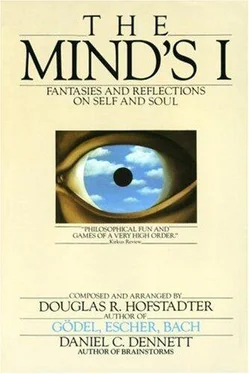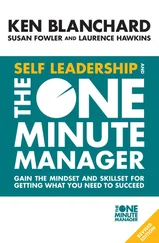The short answer to this argument is that although it is established that there are limitations to the powers of any particular machine, it has only been stated, without any sort of proof, that no such limitations apply to the human intellect. But I do not think that this view can be dismissed quite so lightly. Whenever one of these machines is asked the appropriate critical question, and gives a definite answer, we now that this answer must be wrong, and this gives us a certain feeling of superiority. Is this feeling illusory? It is no doubt quite genuine, but I do not think too much importance should be attached to it. We too often give wrong answers to questions ourselves to be justified in being very pleased with such evidence of fallibility on the part of the machines. Further, our superiority can only be felt on such an occasion in relation to the one machine over which we have scored our petty triumph. There would be no question of triumphing simultaneously over all machines. In short, then, there might be men cleverer than any given machine, but then again there might be other machines cleverer again, and so on.
Those who hold to the mathematical argument would, I think, mostly be willing to accept the imitation game as a basis for discussion. Those who believe in the two previous objections would probably not be interested in any criteria.
4. The Argument from Consciousness. This argument is very well expressed in Professor Jefferson’s Lister Oration for 1949, from which I quote. “Not until a machine can write a sonnet or compose a concerto because of thoughts and emotions felt, and not by the chance fall of symbols, could we agree that machine equals brain—that is, not only write it, but know that it had written it. No mechanism could feel (and not merely artificially signal, an easy contrivance) pleasure at its successes, grief when its valves fuse, be warmed by flattery, be made miserable by its mistakes, be charmed by sex, be angry or depressed when it cannot get what it wants.”
This argument appears to be a denial of the validity of our test. According to the most extreme form of this view the only way by which one could be sure that a machine thinks is to be the machine and to feel oneself thinking. One could then describe these feelings to the world, but of course, no one would be justified in taking any notice. Likewise according to this view the only way to know that a man thinks is to be that particular man. It is in fact the solipsist point of view. It may be the most logical view to hold but it makes communication of ideas difficult. A is liable to believe “A thinks but B does not” while B believes “B thinks but A does not.” Instead of arguing continually over this point it is usual to have the polite convention that everyone thinks.
I am sure that Professor Jefferson does not wish to adopt the extreme and solipsist point of view. Probably he would be quite willing to accept the imitation game as a test. The game (with the player B omitted) is frequently used in practice under the name of viva voce to discover whether someone really understands something or has “learned it parrot fashion.” Let us listen to a part of such a viva voce:
INTERROGATOR: In the first line of your sonnet which reads “Shall I compare thee to a summer’s day,” would not “a spring day” do as well or better?
WITNESS: It wouldn’t scan.
INTERROGATOR: How about “a winter’s day”? That would scan all right.
WITNES: Yes, but nobody wants to be compared to a winter’s day.
INTERROGATOR: Would you say that Mr. Pickwic reminded you of Christmas?
WITNESS: In a way.
INTERROGATOR: Yet Christmas is a winter’s day, and I do not think Mr. Pickwick would mind the comparison.
WITNESS: I don’t think you’re serious. By a winter’s day one means a typical winter’s day, rather than a special one like Christmas.
And so on. What would Professor Jefferson say if the sonnet-writing machine was able to answer like this in the viva voce? I do not know whether he would regard the machine as “merely artificially signaling” these answers, but if the answers were as satisfactory and sustained as in the above passage I do not think he would describe it as “an easy contrivance.” This phrase is, I think, intended to cover such devices as the inclusion in the machine of a record of someone reading a sonnet, with appropriate switching to turn it on from time to time.
In short, then, I think that most of those who support the argument from consciousness could be persuaded to abandon it rather than be forced into the solipsist position. They will then probably be willing to accept our test.
I do not wish to give the impression that I think there is no mystery about consciousness. There is, for instance, something of a paradox connected with any attempt to localize it. But I do not think these mysteries necessarily need to be solved before we can answer the question with which we are concerned in this paper.
5. Arguments from Various Disabilities. These arguments take the form “I grant you that you can make machines do all the things you have mentioned but you will never be able to make one to do X.” Numerous features X are suggested in this connection. I offer a selection.
Be kind, resourceful, beautiful, friendly… have initiative, have a sense of humour, tell right from wrong, make mistakes… fall in love, enjoy strawberries and cream… make someone fall in love with it, learn from experience… use word properly, be the subject of its own thought… have as much diversity of behaviour as a man, do something really new.
No support is usually offered for these statements. I believe they are mostly founded on the principle of scientific induction. A man has seen thousands of machines in his lifetime. From what he sees of them he draws a number of general conclusions. They are ugly, each is designed for a very limited purpose, when required for a minutely different purpose they are useless, the variety of behaviour of any one of them is very small, etc. Naturally he concludes that these limitations are associated with the very small storage capacity of most machines. (I am assuming that the idea of storage capacity is extended in some way to cover machines other than discrete state machines. The exact definition does not matter as no mathematical accuracy is claimed in the present discussion.) A few years ago, when very little had been heard of digital computers, it was possible to elicit much incredulity concerning them, if one mentioned their properties without describing their construction. That was presumably due to a similar application of the principle of scientific induction. These applications of the principle are of course largely unconscious. When a burned child fears the fire and shows that he fears it by avoiding it, I should say he was applying scientific induction. (I could of course also describe his behaviour in many other ways.) The works and customs of mankind do not seem to be very suitable material to which to apply scientific induction. A very large part of space-time must be investigated if reliable results are to be obtained. Otherwise we may (as most English children do) decide that everybody speaks English, and then it is silly to learn French.
There are, however, special remarks to be made about many of the disabilities that have been mentioned. The inability to enjoy strawberries and cream may have struck the reader as frivolous. Possibly a machine might be made to enjoy this delicious dish, but any attempt to make one do so would be idiotic. What is important about this disability is that it contributes to some of the other disabilities, e.g., to the difficulty of the same kind of friendliness occurring between man and machine as between white man and white man, or between black man and black man.
Читать дальше











